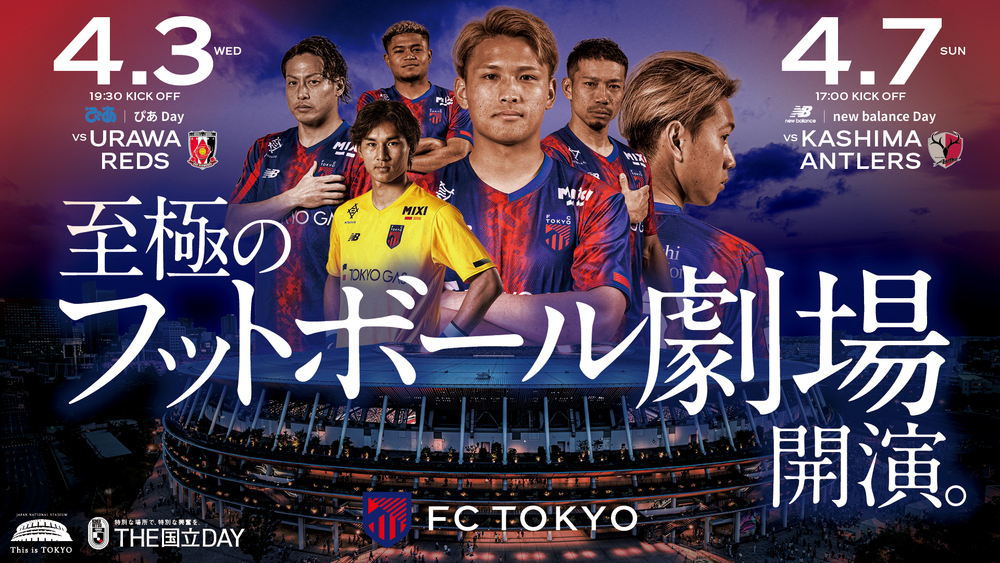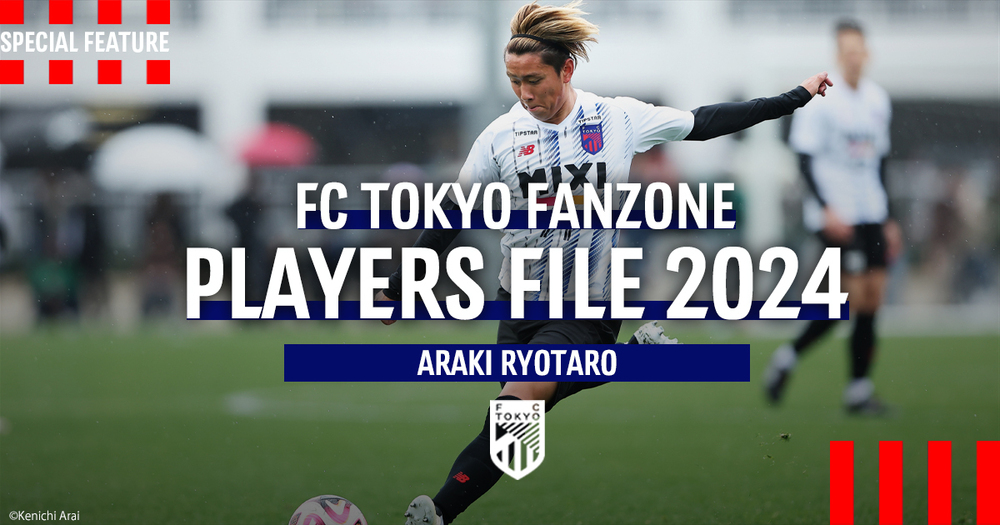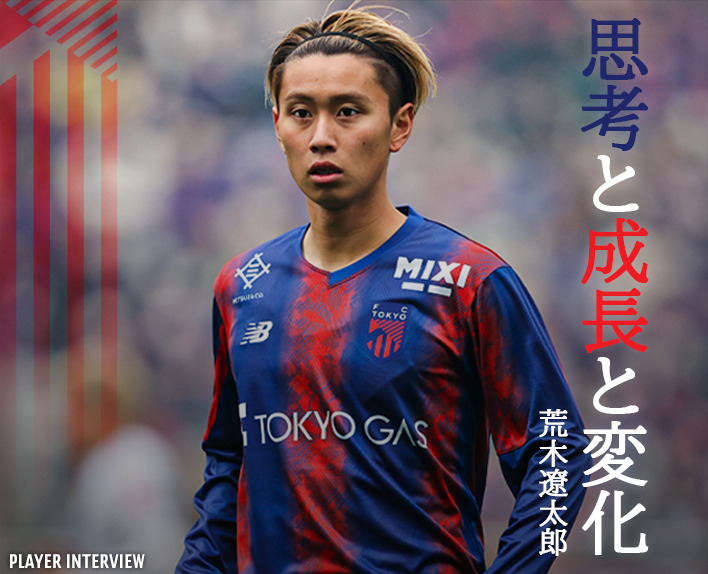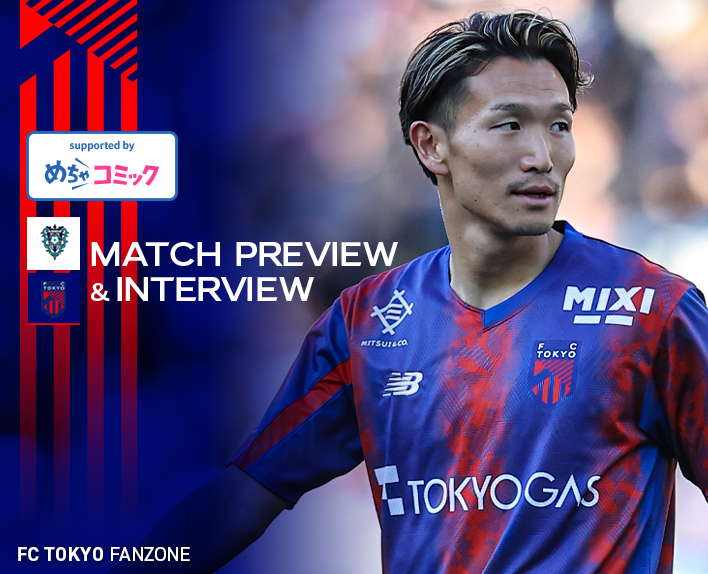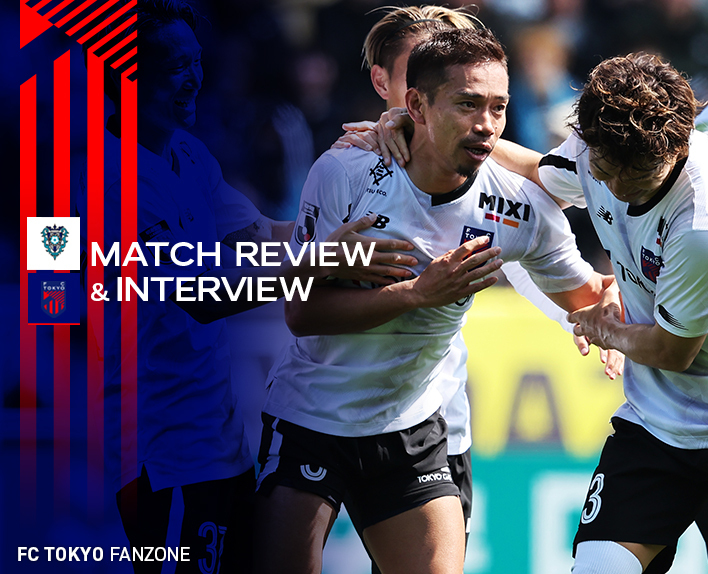"If I am given the chance to play in the match, I am confident I can deliver results."
Since joining Tokyo, Ryotaro ARAKI has made a remarkable impact with 3 goals in the first 2 matches, as he has long asserted. The game maker of the Paris Olympic generation, who has established himself in the attacking midfield position, is rapidly becoming the team's "face".
As an individual player, he made a significant impact since the opening match and has been in the spotlight for selection to the U-23 Japan national team, shining brightly. However, the team has struggled without a win in three matches. Entrusted with the role of 'number 10', he has taken on the responsibility of leading the blue-red squad from the front in both offense and defense. How does he view his own situation and that of the team?
Let's unravel Ryotaro ARAKI's thoughts, growth, and changes both on and off the pitch.
──In the opening match against Cerezo Osaka, I expressed my joy by jumping towards the goal area and hitting my chest emblem after scoring. It was illustrated in the detailed review of the opening match, but are you the type to think about various goal celebrations?
No, no, I wasn't thinking about it at all. I did want to score in the opening match, but I really didn't think I would actually do it, so I wasn't thinking about any performance (laughs). That's why my performance in the opening match just came out spontaneously. Since I was able to score there, I thought, "Maybe there will be another chance next time," and if I scored, I planned to greet the fans and supporters at Ajinomoto Stadium with a "bowing pose," and I was able to score properly (laughs).
──Have you had any established goal celebrations so far?
There isn't anything in particular. At Kashima Antlers, when we scored a goal, we would go to the bench and celebrate together. I think that boosts team morale, and I’m considering doing the same in Tokyo in the future.
──Cerezo Osaka played against Sanfrecce Hiroshima in the first two matches of the season, both of which they managed to come back and draw despite initially falling behind. The third match against Vissel Kobe ended in a frustrating comeback loss after they took the lead for the first time. Personally, while I feel I am achieving results, I also think there is a sense of frustration that the team remains winless. How do you reflect on the battles since the season opener?
This is something I often tell the media, but both our team's offense and defense are improving significantly, and I see that as a positive. However, we still need to improve how we manage the game.
──Regarding the game management, what specific aspects do you see as challenges? The Kashima Antlers, where Araki played until last season, have a strong image of being "game masters."
For example, in the match against Kobe, the 5 to 10 minutes after scoring the first goal are crucial, so we absolutely cannot concede a goal during that time. We talked about not going into a defensive mode but rather pushing for more offense, but we couldn't execute that well and couldn't express it on the pitch. That aspect is a challenge for us.
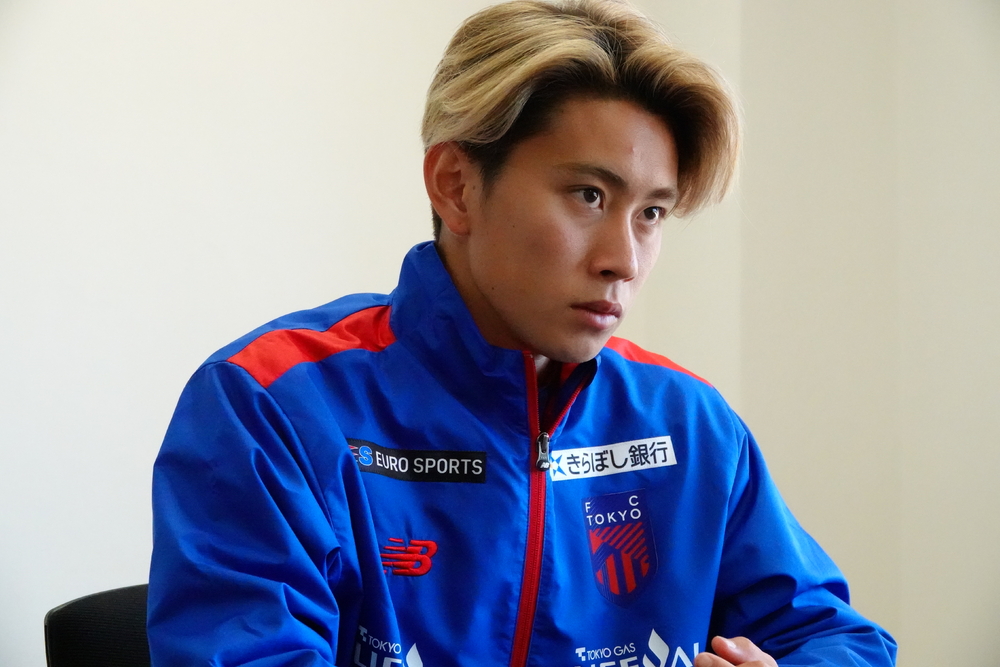
──How can we improve that?
I think playing high up as a team is one strategy. The opponent often comes forward after conceding the first goal, so instead of simply kicking the ball forward, Tokyo should build up play confidently while connecting passes. If we can create one or two chances there, the opponent will have to step back a bit. I believe that kind of courageous play is necessary.
However... I honestly thought it would be a bit difficult since there was no lead from the start of the season. But if we take that positively, I believe it has been a good learning experience for the team. In the first three matches, we managed to draw while being behind, and we lost after taking the lead, but from here on, it is absolutely necessary for the team to have the ability to win. With various factors at play, I want to firmly acquire that kind of strength.
──To secure a victory, it seems necessary to increase the scenes where the attacking players, including Matsuki, are involved in goals, while also demonstrating a well-coordinated defense.
First of all, regarding the attacking lineup, we really have some amazing players. Each one has their own individuality, and I believe that as long as we can coordinate well in our attacks, there shouldn't be any problems. However, the fact that we have been conceding many goals since the opening match is a concern. It's important for the entire team to defend together, and of course, sharing the critical moments when we absolutely cannot concede goals and being solid in our defense will surely bring us closer to more victories.
──Does that mean we need to align our awareness of the time zone and defense strategy?
That's right, I believe that if we can align our thoughts on the time frame together, we will be able to reduce the number of goals conceded.
──As an individual, I have achieved 3 goals in the first 2 matches of the season. How do you evaluate yourself up to this point?
It might be good to look at the numbers, but I think the performance throughout the 90 minutes of the opening match, where I scored 2 goals, was not good at all. As the matches go on, my performance is improving, and I have a strong desire to help the team win with my goals, so I want to contribute even more with the mindset of scoring my own goals and defending as well.
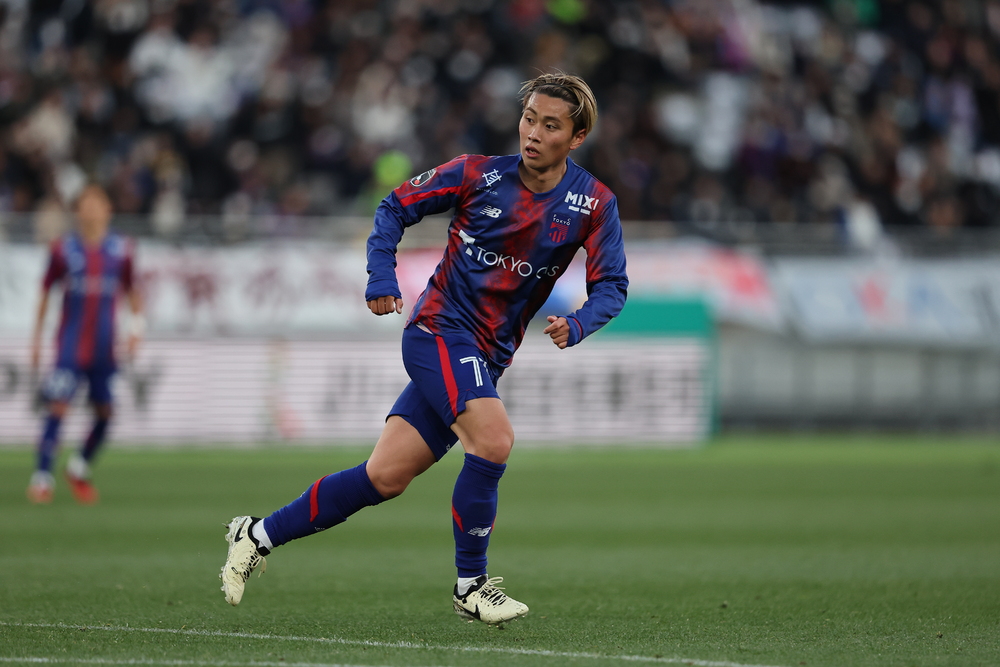
──After the opening match, I said, "I was confident that if I was used, I could deliver results. I am grateful to Coach Peter for bringing me to Tokyo and using me." Now that I have joined, what specific aspects do you feel fit well?
First of all, placing the "number 10" (attacking midfielder) in the formation has been significant for me. In reality, the style of play involves progressing the attack through me on the pitch, and I truly feel that it suits me well. After finishing the camp and gradually practicing day by day, I've started to gain trust from those around me, leading to more passes coming my way, and from there, I've been able to create attacks. So, I reaffirm that this really suits me.
──By the way, I think there were various options when deciding to transfer to Tokyo. Did Coach Peter CKLAMOVSKI say anything that convinced you to make that decision?
First of all, I really felt that the coach's style suits me. Also, I've been told continuously, "I really love your play" (laughs). I can actually showcase my strengths, so I truly believe it was great to come to Coach Peter's team.
──It seems that he has completely become the linkman in attack since the opening. I think a big part of it is that he has gained trust from those around him, but what kind of ingenuity is he showing on the pitch?
Always showing your face to the ball holder and indicating "I'm here" with movement and voice has led to more passes coming from that. There are many players in the front line who make their movements easy to understand, so I want to draw the ball out a lot and increase the passes that support the front line players. Overall, there are many players who are easy to work with. Players in the back positions look at me and keep passing the ball. Personally, I am the type to create rhythm while touching the ball, so it has become easier for me.
──Specifically, what is myself like when I am playing well.
It's definitely when I'm touching the ball a lot. If I touch the ball, I can create chances, and I also think that by touching it, I can create the team's rhythm.
──Conversely, I think there are times when both as a team and individually, we find ourselves in difficult situations during a match. The solution for such times is.
That's a place I want to resolve by accumulating more matches. Until now, I was in a younger position, and my seniors were leading, so I haven't really been conscious of such things. However, I'm no longer a young player, and how I can conduct myself... While it's challenging, to be honest, I'm still exploring that aspect.
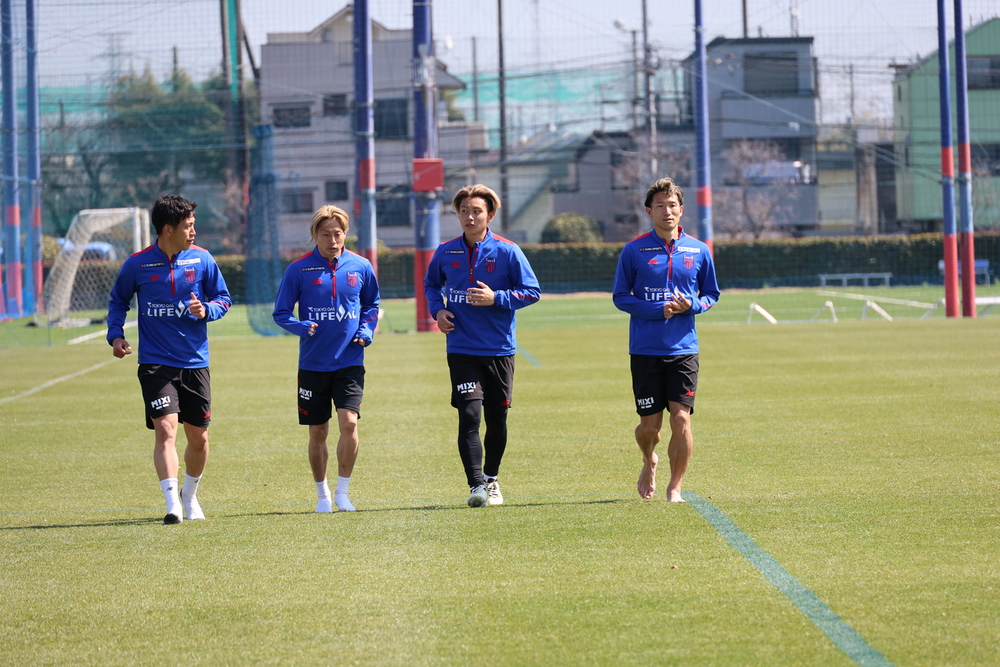
──What would you like to do to rebuild the team from here?
First of all, it's absolutely necessary to communicate with those around you. As a player, I want to become someone who can overcome difficult situations on my own. That's the easiest way.
──Has your position within the team, your awareness, and the situation you are in changed little by little?
That's right. I feel that there has been a change in perception regarding age as well. Since this team has many young players, I wonder if that contributes to the change in mindset.
──Since moving to Tokyo, has a sense of responsibility to deliver results in response to expectations arisen?
No... I don't really feel that way (bitter smile). First of all, I want to work hard to shine as a football player.
──In April, there will be back-to-back matches against Urawa Reds and Kashima Antlers at the Japan National Stadium. What are your impressions of Urawa Reds?
Before the opening, we had a practice match, and I thought it was quite a good team. I also watched the league matches, and I have the impression that they will be formidable once they are complete.
──This season, Swedish national team player Gustafsson has joined as an anchor. I believe he will be a direct matchup against Araki.
It was quite challenging even in the practice match. Gustafson is good at showing his face, and the triangle including the two center-backs has high technical skills at their feet, so it gives the impression that it won't be easy to take the ball from them. I think how we respond to that will be the key point. I believe Urawa will come up with various strategies, and once the match starts, it will be necessary to adapt flexibly while observing how the opponent approaches the game.
──I cannot participate in the match against Kashima due to a loan agreement, but what is your impression of Kashima this season?
The coach has changed, so the team is different from when I was there, but I thought that the way they equalized at the last moment and secured points in the match against Cerezo Osaka in Sec. 2 showed the characteristic competitiveness of Kashima. When facing them, it is absolutely necessary to maintain concentration throughout the full 90 minutes.
──Is there any information you want to convey to the players in Tokyo?
The style has changed, so there isn't much information as a team. I think there are things we can talk about regarding the individual characteristics of the players and finer details.
──Finally, what I think about playing at the National.
I want to have an intense match on the pitch and celebrate together with everyone after winning. Personally, I enjoy playing in front of a large crowd, so it really lifts my spirits.
If we can win these two matches, I believe it will give us momentum and confidence as a team and as players, and I want to focus on winning wholeheartedly. Scoring goals would be the best, but I also want to showcase my strengths in other areas, so I hope people will notice that. I want to make this a great opportunity for many people to get to know my play, and for the team, these two matches are crucial for our rise, so I want to fight with a strong focus on the results.
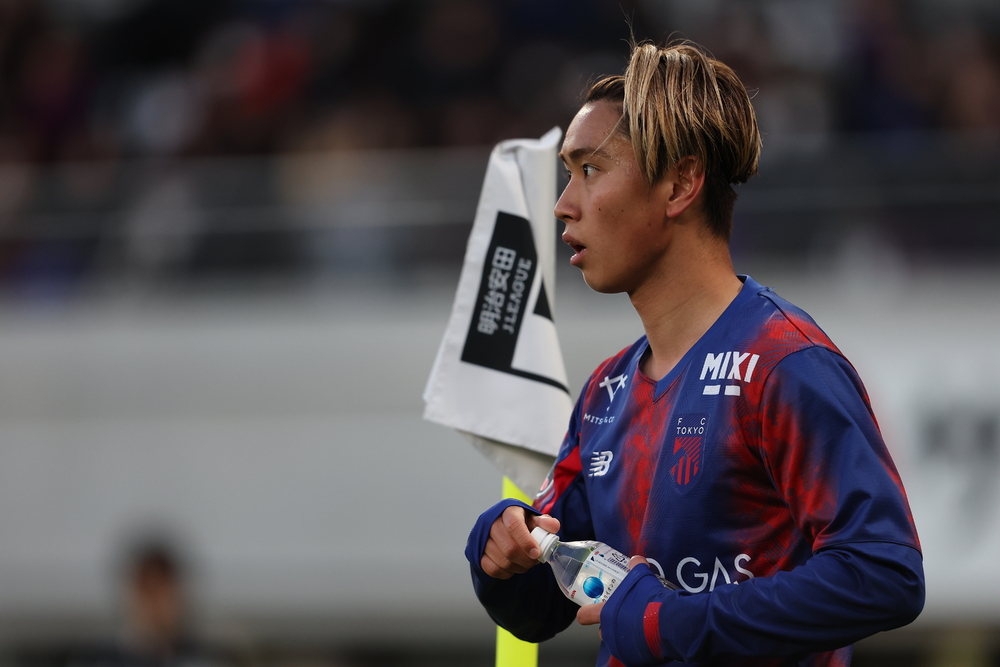
Text by Tomoo Aoyama
An interview with Araki is also available on Sports Navi.
The article is here
